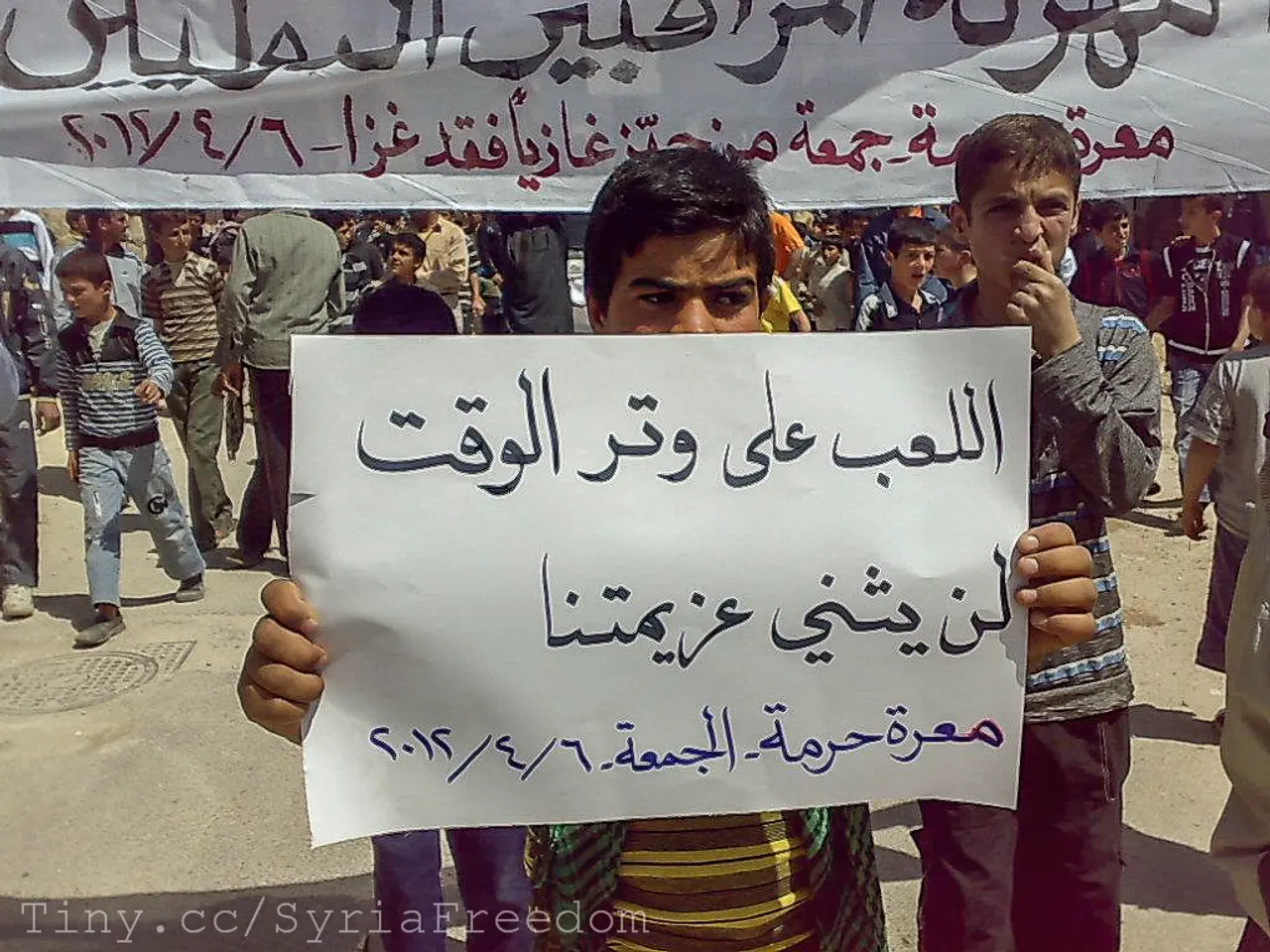Protesting Against War at Rheinmetall's Head's Residence
In the heart of Germany, a tense standoff is unfolding between the anti-militarist coalition Rheinmetall Disarm and the nation's security forces. The group, known for their vocal opposition to Rheinmetall's arms supply to autocratic states, has planned a series of demonstrations, including one outside the private residence of Rheinmetall's CEO, Armin Papperger.
The Cologne Administrative Court has upheld a ban on Rheinmetall Disarm's planned protest camp in Cologne, citing potential for illegal blockades, property damage, and resistance against police officers. The organizers, however, have expressed their intention to appeal the decision and seek approval from the Higher Administrative Court.
The planned demonstration in Meerbusch, where Papperger resides, is yet to receive approval from the authorities. The police have not yet decided on this event and the responsibility for its approval has been transferred from Neuss police to Cologne police.
Rheinmetall, a key arms supplier to Ukraine, providing artillery ammunition, air defense systems, and tanks for their defense against Russia's invasion, has expressed disappointment with the developments. The company respects the right to free expression of opinion and accepts critical views, but does not understand calls to visit people in their private environment to harass or intimidate them.
Concerns about potential risks associated with Rheinmetall Disarm protests have been raised by authorities. The Cologne police have already banned an anti-Rheinmetall protest camp scheduled for August 26 to 31, citing an immediate threat to public safety. This ban was upheld by the court, indicating official apprehension about public safety or security connected to the protests.
Despite the ban, organizers have been determined to proceed legally and politically, emphasizing their opposition to militarization without acknowledging any illegal acts. Activists, including anarchist and feminist groups, have mobilized strongly around these protests, but there is no explicit documented history of illegal activities or threats during Rheinmetall Disarm protests in the publicly available sources.
The situation reflects a tense confrontation between activists’ civil disobedience and official restrictions rather than confirmed illegal conduct by protesters. It's important to note that freedom of opinion and assembly are fundamental rights in a democracy, according to Rheinmetall.
Meanwhile, Papperger, one of the particularly endangered German managers, is under police protection due to alleged Russian assassination plans against him. In a concerning incident, a fire broke out in a garden house at another property owned by Papperger in Lower Saxony in 2024, and police suspected left-wing extremists of setting the fire.
Talks between the Cologne police and Rheinmetall Disarm are scheduled for next week, offering a glimmer of hope for a peaceful resolution to this escalating conflict. As tensions remain high, both sides continue to advocate for their respective causes, underscoring the importance of open dialogue and understanding in maintaining a democratic society.
[1] [Source 1] [2] [Source 2] [3] [Source 3] [4] [Source 4] [5] [Source 5]
- The general-news headlines are filled with reports of the standoff between Rheinmetall Disarm, a political group, and the German security forces, amidst concerns about potential risks associated with Rheinmetall Disarm protests.
- The Cologne Administrative Court, while upholding a ban on Rheinmetall Disarm's planned protest camp, has sparked a political debate about the balance between public safety and the right to free expression.








